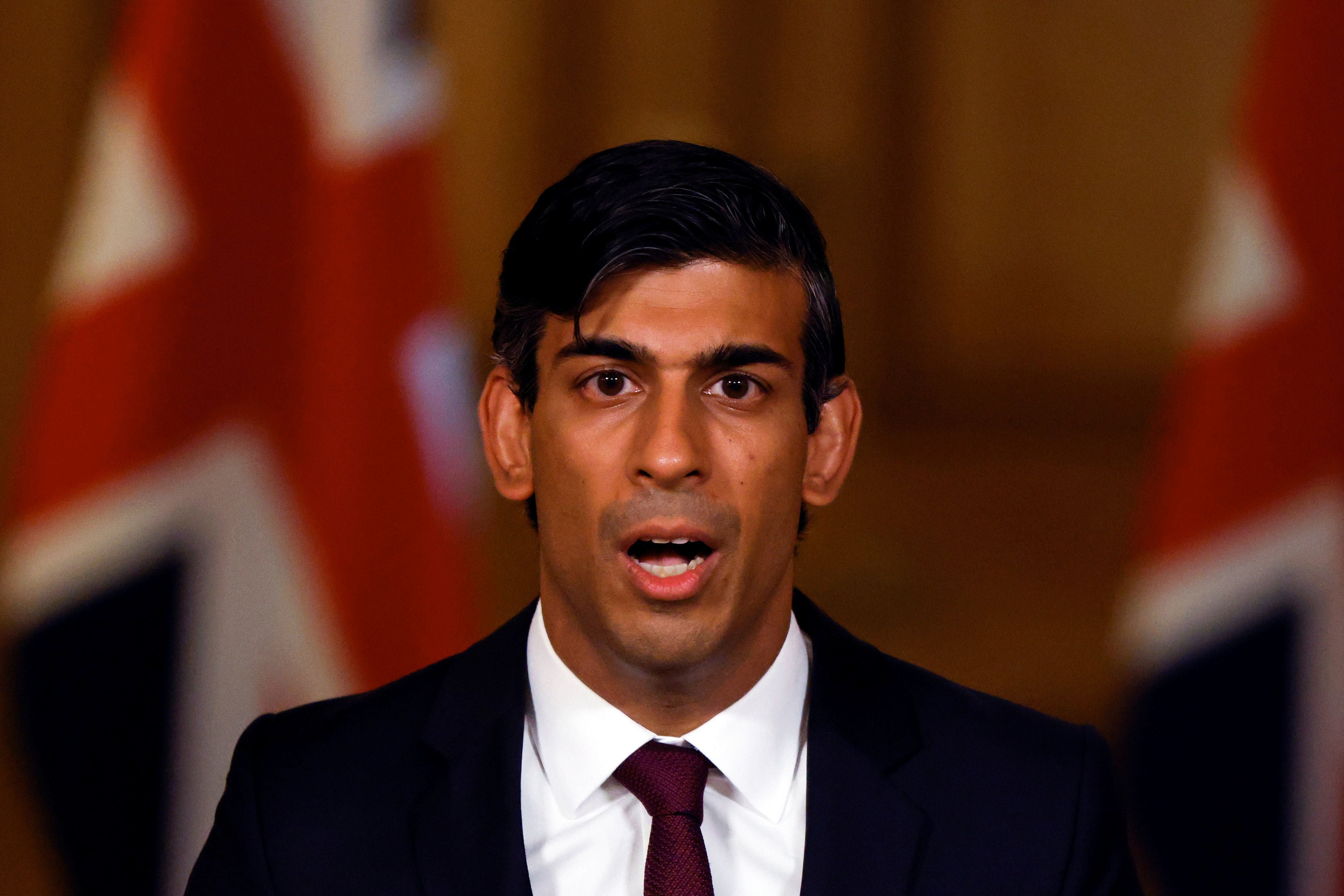The Ukraine crisis puts Rishi Sunak in a difficult position
The changes triggered by the dramatic events in Ukraine might make meaningful tax reductions impossible by 2024, writes Andrew Grice


The Ukraine crisis will have profound, long-term consequences for British politics. While our politicians are naturally focused on the short-term emergency, it will dawn on them soon that the new world order ushered in by Vladimir Putin will be a game-changer at home, as well as abroad.
The economic impact of the huge geopolitical change under way could even derail the Conservatives’ plans to cut taxes before the next general election. Rishi Sunak wrote his keynote Mais lecture –designed to answer critics asking for “the real Rishi” to stand up – before Russia’s invasion of Ukraine. Yet his speech, delivered on the day war began on Thursday, takes on a new significance in the very different new world.
The chancellor adopted the mantle of realism by arguing that he had to restrain borrowing before reducing taxes. He drew a dividing line with Liz Truss in a future Tory leadership election by dismissing “the flippant claim” that tax cuts always pay for themselves by generating growth, an article of faith for the Tory right and one embraced by Truss. Although the foreign secretary styles herself as the heir to Margaret Thatcher, Sunak pointed out that Thatcher raised taxes before cutting them in later years.
Stressing his fiscal conservatism and promising “a low tax economy” is a wise move for Sunak with a leadership election possible, yet some senior Tories also detected “one nation” signals – not what a majority of the party’s MPs and grassroots members want to hear. While making a strong defence of the free market, Sunak also stressed its limits and risks, such as “eroding the bonds between us, and turning a market economy into a market society.”
In a dividing line with Boris Johnson, the chancellor rejected “the assumption that all spending is good” and the “hand-in-hand” demand for more government intervention. Message to cabinet colleagues: limit your spending demands if you really believe in tax cuts.
Yet Sunak’s knows that after a decade of austerity, it will be difficult to squeeze public spending, admitting it is “hard to cut taxes at a time when demands on the state are growing.” You can now say that again, thanks to Putin.
The pressures on spending were big enough before his invasion, due to an ageing population and the need to tackle NHS waiting lists – the issue which far-sighted Tory MPs fear could cost them the next election – and help the ailing social care sector, which will collapse if the NHS swallows up all of the £12bn a year raised by higher national insurance contributions.
Suddenly the demands are even greater. War and sanctions could mean the sluggish rates of economic growth forecast for future years could turn out even lower, hitting tax receipts. Crucially, the UK and its allies will need to spend more on defence in the new global order.
Although Johnson is in denial about it, his wide-ranging foreign and defence policy review, published a year ago, is already out of date.
While it identified Russia as “the most acute threat to our security” in the Euro-Atlantic, the strategy marked a shift to the Indo-Pacific “to respond to the systemic challenge” of China, which got twice as many mentions as Russia.
The document said: “China’s growing international stature is by far the most significant geopolitical factor in the world today, with major implications for British values and interests and for the structure and shape of the international order.” To which we can now add Russia.
Johnson should order another review. He will probably need to reverse the decision to cut the army by 10,000 so he can send troops to eastern Europe on a permanent basis to keep Russia at bay. Sunak argued in his speech that the UK would need a strong economy to “earn” its place at the world’s “top table”; that will also now require more defence spending.
To keep up to speed with all the latest opinions and comment sign up to our free weekly Voices Dispatches newsletter by clicking here
There will be other new demands on the public purse. Johnson, who hates being the bearer of bad news, has been reluctant to admit sanctions against Russia will cause pain at home but admits the government will need to “safeguard” people against the impact on the cost of living. Sunak’s recent £9bn package of help with energy bills may fall well short when another hike looms this autumn.
Although the Tories are divided on many issues, they broadly agree that, after raising taxes this April, they will need to restore their tax-cutting credentials before the next election. Perhaps a token tax cut might be scrambled together. But a mere promise to cut taxes in the Tory manifesto would not pass the test because the party broke its 2019 pledge to do so.
The changes triggered by the dramatic events in Ukraine might make meaningful tax reductions impossible by 2024. The Tories’ re-election strategy was based on aligning the economic and political cycles. Yet this may prove to be the week when events made them dangerously out of sync.






Join our commenting forum
Join thought-provoking conversations, follow other Independent readers and see their replies
Comments